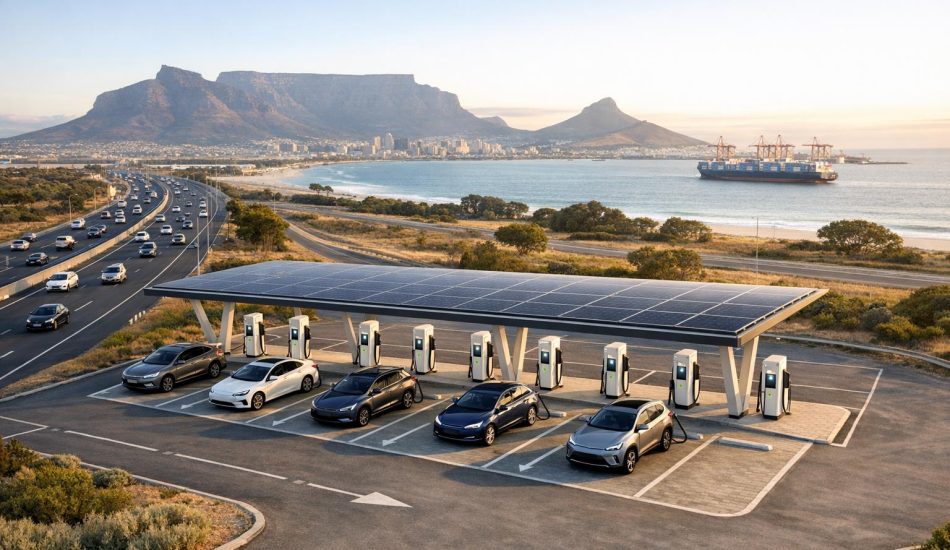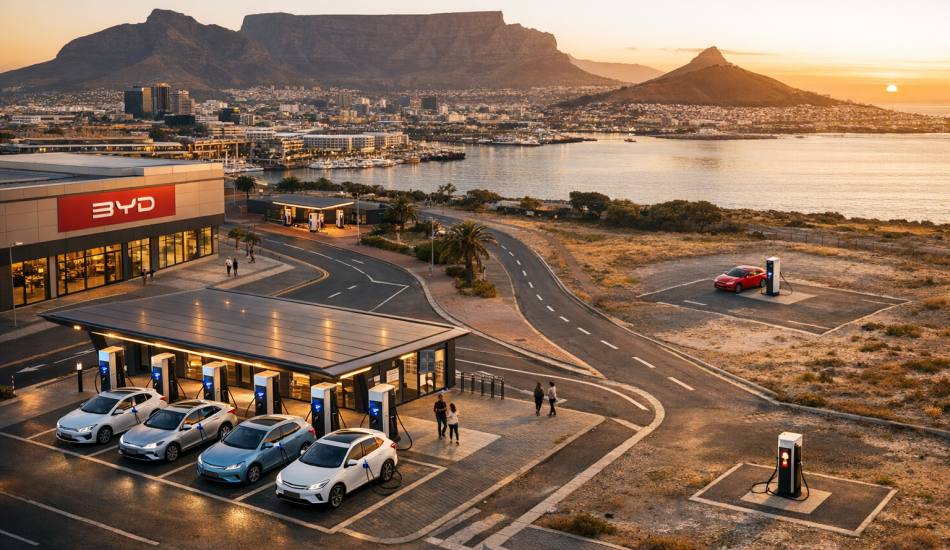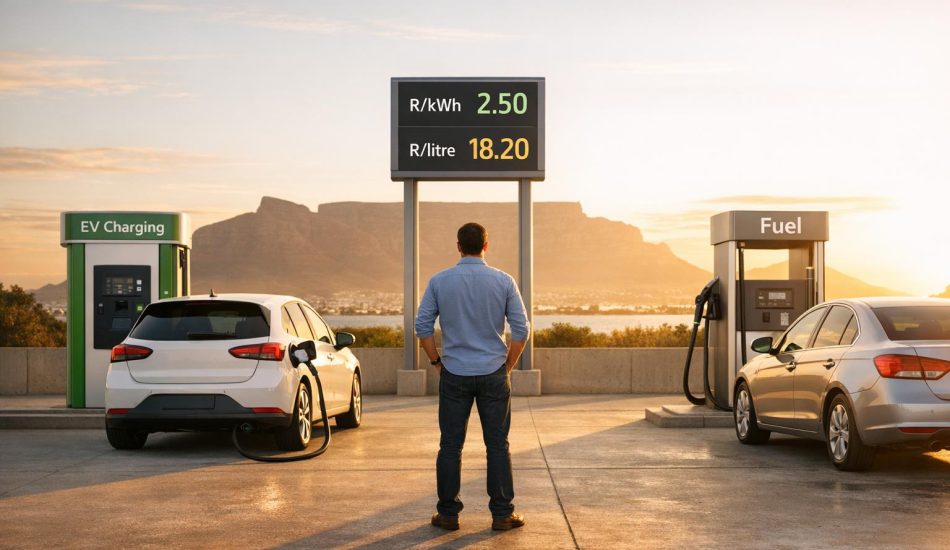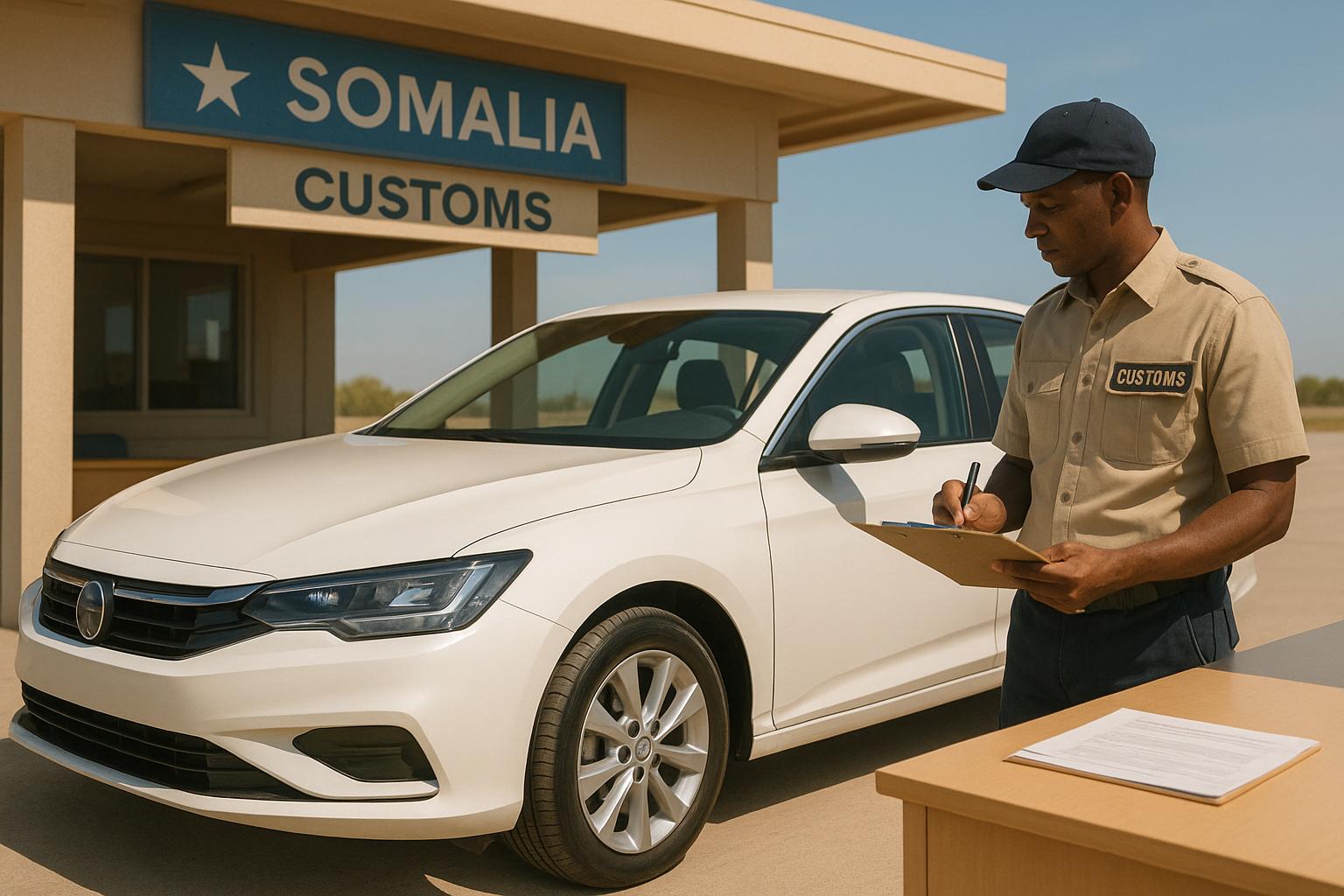
Somalia’s updated car import laws for 2025 introduce stricter rules for vehicle imports, focusing on emissions, safety, and documentation. These changes apply to both personal and commercial importers, with a push towards hybrid and electric vehicles. Key highlights include:
- Vehicle Age and Emissions Standards: Rules are stricter, especially for conventional cars. EVs are exempt from emissions requirements.
- Import Duty: Fixed at 25% for all vehicle types, including electric cars.
- Required Documents: Extensive paperwork is mandatory, such as import permits, proof of ownership, and a Certificate of Conformity (COC).
- Regional Differences: Import policies and taxes vary across Somalia’s federal states.
- Electric Vehicles: No tax breaks for EVs, and charging infrastructure is limited, requiring private setups.
To avoid fines or confiscation, ensure compliance by working with authorized customs agents, using Somalia’s SOMCAS digital system, and staying updated on regulations. Companies like EV24.africa can assist with EV imports, offering services like customs clearance, financing, and delivery.
Key Takeaway: Importing a vehicle to Somalia in 2025 requires thorough planning, proper documentation, and adherence to the new regulations. Electric vehicles face fewer compliance hurdles but come with infrastructure challenges.
Berbera Port- Import tax & Collection of Container to Make Our House in Hargeisa Home @SamirahJees
Main Vehicle Import Regulations in Somalia
Somalia’s 2025 vehicle import framework introduces structured guidelines for bringing vehicles into the country. While the complete details are yet to be unveiled, the framework is set to cover essential aspects like vehicle classification, condition requirements, and regional administrative practices. Here’s a closer look at the main categories of these regulations.
Permitted Vehicle Types and Restrictions
Imported vehicles will fall into two categories: new or used. To ensure compliance, importers are advised to stay updated with official announcements outlining the exact criteria for each category.
Vehicle Age Limits and Emissions Standards
Specific rules regarding vehicle age and emissions standards are still forthcoming. These factors, alongside vehicle type, are expected to play a significant role in determining import eligibility. Importers should keep an eye out for updates to avoid potential issues.
Regional Variations in Import Policies
Somalia’s federal system allows individual member states to enforce their own customs regulations, which adds a layer of complexity to the import process. These regional differences can affect procedures, tax rates, and local fees. Although efforts are underway to harmonize tax policies, each state currently manages its own import taxes. Importers should carefully check the requirements at their intended port of entry and destination, as these variations could significantly impact the overall process.
Import Process, Required Documents, and Costs
Bringing a vehicle into Somalia requires careful planning and ensuring all necessary paperwork is in order.
Required Import Documentation
To import a vehicle into Somalia, you’ll need to gather several key documents, including:
- Vehicle identification number
- Vehicle specification documents
- Original purchase invoice
- Packing list
- Owner’s manual
- Import permit
- Authorization from the Road Authority Ministry
- Bill of lading
- Letter of support
- Passport
- Vehicle registration
- Proof of insurance and ownership
It’s crucial to double-check these requirements with Customs ahead of time, as regulations may change unexpectedly.
"It is essential to contact Customs before vehicle importation to confirm the required documentation and requirements, as they are subject to change at any time. Process documents an additional 10 days."
sbb-itb-99e19e3
Electric Vehicle Import Rules and EV24.africa Services
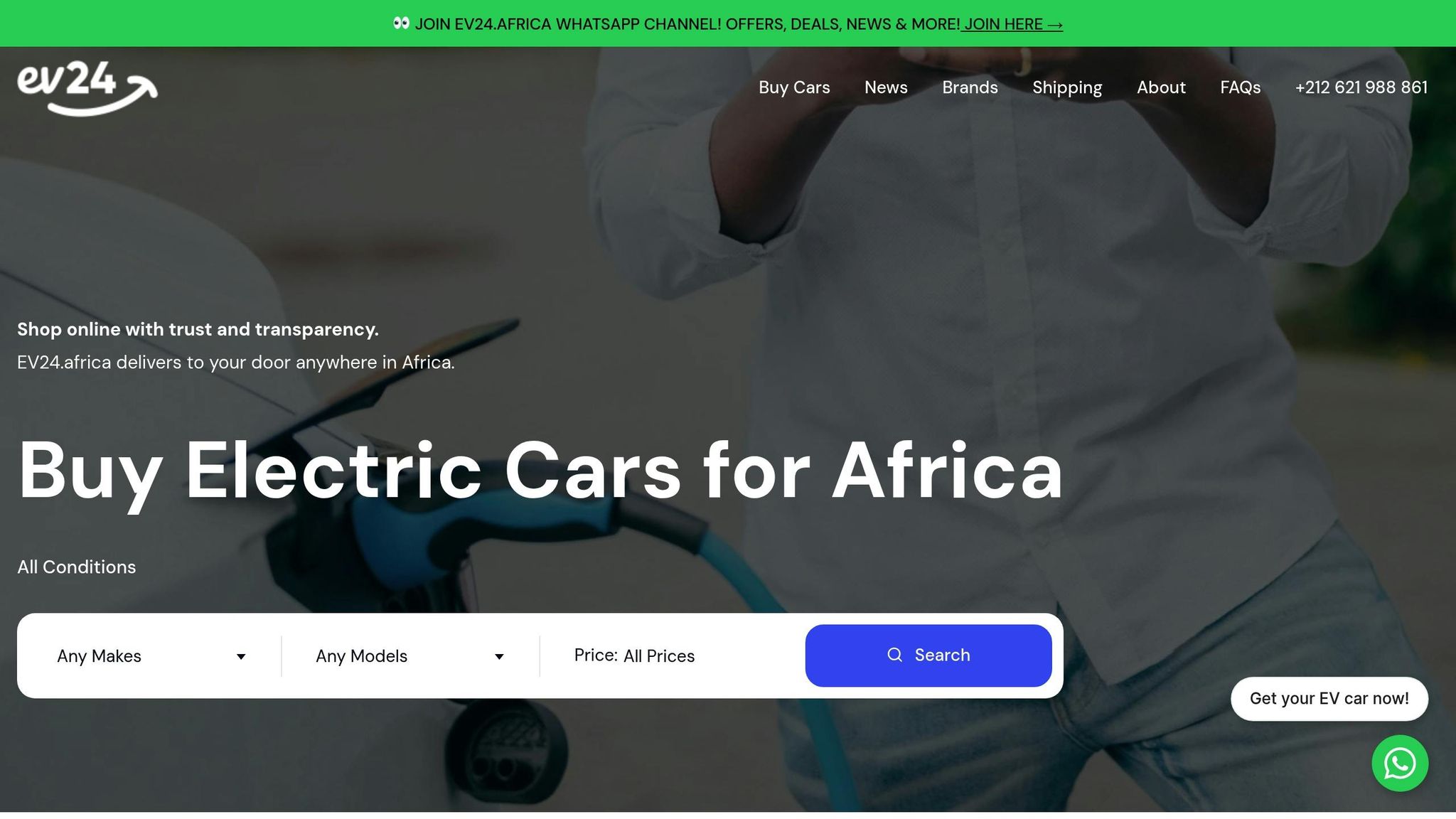
Somalia’s 2025 car import regulations treat electric vehicles much like conventional cars, but there are a few key differences that importers need to be aware of.
Special Requirements for Electric Vehicle Imports
Electric vehicles follow the same basic import process as gasoline or diesel-powered cars, but there are some distinctions. For starters, the import duty for EVs is set at 25%, which is the same as for conventional vehicles. Unlike some countries, Somalia has not introduced tax breaks or reduced fees for EV imports as of 2025.
The paperwork required for EV imports is identical to that for conventional cars. However, a major challenge lies in the limited availability of charging infrastructure. This means EV owners will need to set up private charging stations at their homes or workplaces to keep their vehicles running.
On the upside, electric vehicles don’t have to meet the stricter emissions and safety standards that gasoline and diesel cars face under Somalia’s updated regulations. Additionally, the SOMCAS platform simplifies the customs declaration process for all vehicle imports, including EVs, through a digital system.
To help importers navigate these specifics, EV24.africa provides dedicated services tailored to electric vehicle imports.
How EV24.africa Helps with Electric Vehicle Imports
EV24.africa makes importing electric vehicles into Somalia straightforward, handling the unique challenges that come with EVs. Here’s how they assist:
- Shipping and Customs Clearance: EV24.africa takes care of the logistics, ensuring that shipping and customs procedures are handled efficiently. For first-time importers, their team manages all the necessary paperwork and ensures compliance with Somalia’s regulations, avoiding unnecessary delays or penalties.
- Flexible Financing Options: For buyers who can’t pay the full cost upfront, EV24.africa offers financing solutions. These payment plans work with local banks and international payment systems, making EVs more accessible.
- Transparent Pricing: The platform provides a clear breakdown of all costs, including duties, shipping fees, and other expenses. This helps importers budget accurately and avoid unexpected charges.
- Door-to-Door Delivery: EV24.africa offers delivery services across Africa, including Somalia. Customers can choose between cost-effective port-to-port shipping or a full door-to-door service for maximum convenience.
Additionally, EV24.africa stocks a variety of electric vehicles, ranging from affordable models to high-end options, giving Somali buyers plenty of choices.
Electric vs. Conventional Vehicle Import Requirements
Although the import process for electric and conventional vehicles is broadly similar, there are a few important differences to keep in mind:
| Requirement/Cost/Benefit | Electric Vehicles (EVs) | Conventional Vehicles (Gasoline/Diesel) |
|---|---|---|
| Import Duty Rate | 25% (fixed) | 25% (varies by engine size) |
| Tax Incentives | None | None |
| Required Documents | Same as conventional vehicles | Same as EVs |
| Environmental Standards | No emissions requirements | Stricter emissions standards in 2025 |
| Infrastructure Needs | Limited charging; private setup required | Fuel stations widely available |
| Import Process | Digital via SOMCAS system | Digital via SOMCAS system |
| Compliance Penalties | Significant fines for missing documents | Significant fines for missing documents |
The main challenge for EV owners lies in the lack of charging infrastructure. While gas stations are readily available for conventional vehicles, EV owners must plan ahead to install private charging solutions before their cars arrive.
Another key difference is emissions compliance. Conventional vehicles must meet stricter environmental standards in 2025, which can complicate the import process. Electric vehicles, on the other hand, are exempt from these requirements, making their approval process simpler.
Both EVs and conventional cars benefit from Somalia’s modernized customs system. The SOMCAS platform streamlines the entire import process, from declarations to payments, ensuring a smoother experience for all vehicle types.
Compliance Rules and Avoiding Import Penalties
Staying in line with import procedures and adhering to EV-specific regulations is critical to avoid hefty penalties. Somalia’s 2025 car import laws come with strict enforcement measures, which could lead to steep fines, vehicle confiscation, or even criminal charges for violations. For anyone involved in vehicle importation, understanding how customs authorities enforce these rules and the consequences of non-compliance is essential.
How Import Laws Are Enforced
Somalia’s customs authorities rely on the Somali Customs Automated System (SOMCAS) to oversee vehicle imports from the moment documentation is submitted to final clearance. At ports of entry, officers carefully check that vehicles align with submitted documents, meet the required age and left-hand drive standards, and carry a valid Certificate of Conformity (COC) – a requirement introduced on January 1, 2025. To ensure compliance, follow-up inspections and random spot checks are conducted using SOMCAS records.
What Happens If You Violate Import Laws
Violating Somalia’s import regulations, as outlined in the Customs Act 2020, can lead to severe consequences. These include fines, vehicle confiscation, or criminal charges. Common violations include missing or invalid COC documentation, submitting fraudulent paperwork, forging documents, evading duties exceeding $10,000, or engaging in organized smuggling. Such offenses can escalate to criminal prosecution.
Steps to Ensure Compliance
To avoid penalties, precision and proactivity are key. Here’s how to stay compliant:
- Work with authorized customs agents familiar with Somalia’s updated regulations and SOMCAS procedures.
- Double-check all required documents, such as the logbook, importation certificate, roadworthiness certificate, service history, and vehicle tax clearance. Ensure they are complete, valid, and accurate.
- Confirm that the vehicle meets all legal requirements, including left-hand drive specifications and age limits.
- Obtain a valid COC certificate and pay the 25% duty in full before the vehicle is released.
- Keep detailed records to facilitate audits and inspections.
- Stay in regular communication with your customs agent and monitor any regulatory changes.
Conclusion: Somalia’s 2025 Car Import Laws Summary
Somalia’s upcoming 2025 car import laws bring stricter compliance measures and new standards, enforced through SOMCAS. For anyone planning to import vehicles – whether for personal or business use – understanding these regulations is crucial.
The updated framework emphasizes the importance of proper documentation, adherence to specific age limits, and compliance with environmental standards. Import duties for passenger cars will range from 15% to 30%, with additional excise and VAT charges adding to overall costs. Notably, electric vehicles (EVs) will face the same 25% duty as traditional cars, despite the growing interest in EVs across Africa.
Navigating these changes can be complex, especially for electric vehicle imports. This is where expert guidance becomes invaluable. Companies like EV24.africa provide comprehensive support, including customs clearance, local registration, and transparent pricing, making the process easier for importers across all 54 African markets.
"At EV24.africa, we simplify the process of importing and buying electric vehicles in Africa. Our expertise ensures a seamless, transparent, and stress‑free experience, so you can focus on driving the future of mobility."
– EV24.africa
EV24.africa also connects importers to a wide range of EV models and financing options. Their selection includes budget-friendly options starting at $11,800 and premium models priced around $85,000, with flexible shipping and financing solutions tailored to various needs.
To avoid penalties, confiscation, or legal issues, strict compliance with the new regulations is essential. This includes working with authorized customs agents, maintaining complete documentation, and ensuring vehicles meet all legal standards.
As Somalia adopts these updated import laws, its automotive market is set for significant change. Whether you’re importing traditional vehicles or exploring the growing EV market, success will hinge on understanding the rules, staying compliant, and seeking expert assistance when needed.
FAQs
What challenges might arise when importing electric vehicles to Somalia in 2025, and how can they be resolved?
Importing electric vehicles (EVs) to Somalia in 2025 could come with several hurdles. The country currently faces limited access to charging infrastructure, unclear import regulations, and a lack of services and parts designed for EVs. These obstacles might slow down EV adoption for both individuals and businesses.
To overcome these barriers, it’s crucial to prioritize expanding EV charging networks, establish straightforward and consistent import policies, and attract investments in EV-related services. Success will depend on collaboration between policymakers, businesses, and local communities to build the foundation needed for widespread EV adoption.
How do regional differences in Somalia impact the car import process, and what should importers keep in mind?
Regional differences across Somalia play a significant role in shaping the car import process. For example, factors like local infrastructure, the availability of service centers, and access to spare parts can vary widely between areas such as Mogadishu, Hargeisa, and Bosaso. These variations often determine which vehicles are practical to import and maintain in a given region.
Importers also need to account for logistical hurdles, including transportation costs and customs procedures, which can differ from one region to another. Understanding these regional nuances can make the import process smoother and ensure vehicles receive proper long-term support.
What are the key steps to follow to comply with Somalia’s 2025 car import regulations and avoid penalties?
To align with Somalia’s 2025 car import regulations and avoid penalties, it’s crucial to tackle a few important steps. Start by familiarizing yourself with the tariff rates for various vehicle types. These rates often depend on the vehicle’s purpose and category. For instance, passenger cars might face tariffs ranging between 15% and 30%, while commercial vehicles generally incur higher charges.
Next, be aware of vehicle restrictions that could impact eligibility for import. These might include limits on the vehicle’s age or specific emission standards it must meet. Once you’ve confirmed your vehicle qualifies, gather the necessary paperwork. This typically includes your passport, a certificate of valuation, police clearance, and proof of ownership or registration.
By staying proactive and ensuring all documentation is in order, you can streamline the import process and steer clear of any legal or financial complications.


